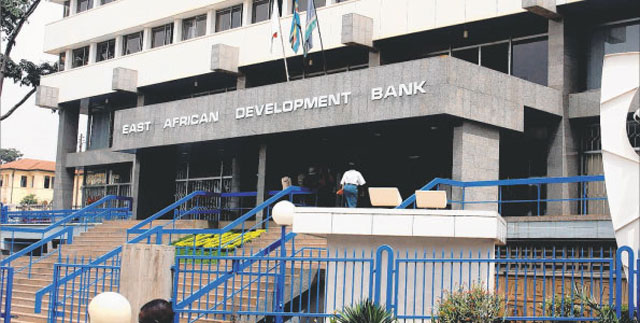
Mubende, Uganda | THE INDEPENDENT | The African Development Bank has threatened to withdraw funding for the project aimed at building the capacity of Ugandans for opportunities in the oil and gas sector, should the government fail to utilize the funds according to the stipulated terms and conditions.
The Bank is funding the East African Crude Oil Pipeline (EACOP) Districts’ Micro, Small & Medium Enterprises (MSME) Business Linkage Project, to make the people along the pipeline corridor ready to access jobs and business opportunities the project is expected to create.
The project is being managed by the Petroleum Authority of Uganda and the Ministry of Energy and Mineral Development in partnership with the Albertine Graben Oil and Gas Districts Association (AGODA). The AfDB has provided U$500,000 (Shillings 1.84 billion) through the Fund for the African Private Sector Assistance (FAPA), while the government of Uganda will provide an equivalent in counterpart funding towards the two-year program.
A similar project is being implemented on the Tanzanian side of the pipeline project route. In Uganda, the projects target people along the crude oil pipeline route. The total length of the pipeline is 1,445 Kilometers. In Uganda it runs through 148 Villages in 24 sub-counties in nine districts of Hoima, Kakumiro, Kyankwanzi, Mubende, Gomba, Sembabule, Lwengo, Kyotera, Rakai and Kikuube.
The project’s overall objective is to help develop capacity of local Uganda MSMEs along the East African crude oil pipeline by enabling them to access new market opportunities and build linkages with larger, national, regional and international companies. The project aims to support inclusive private sector growth and the creation of an estimated 500 jobs along the pipeline.
The target is to have at least 100 local micro-businesses in Uganda trained to do business on the pipeline project and to link at least 70 business enterprises or other relevant business transactions along the pipeline. The project also focuses on helping micro, small and medium enterprises to formalize their operations so that they can be allowed to accesses some of the opportunities on the pipeline project.
Some of the businesses include food supply, restaurants, health services, salons, garages and accommodation among others. But PAU says these will be streamlined in a report that a consultant will produce. The Project Coordinator, Betty Namubiru, who is also the content manager at the PAU, says this will go a long way in ensuring that low-income earners and small enterprises, women and youth-led enterprises are empowered to access some of these opportunities.
The Hoima District Production Officer, Dr. Charles Kajura expressed worry that farmers seem to be left out of these programs and yet, food will be the biggest supply to the personnel in the oil and gas sector.
He says the opportunities will be enormous, but the Ugandans will not be able to access them because of lack of capacity. He says the district local governments (DLG) should be given the task of coordinating farmers and other sectors for this project.
The AfDB reminded the Ugandan authorities of the lengthy procedures they institute in managing projects, which leads to project delays and end up affecting the project value for money. The Bank’s Senior Private Sector Officer, Juliet Byaruhanga warned that the project is only two years starting September 2020 and that any delays could attract penalties from the lender.
However, PAU Executive Director, Ernest Rubondo assures the bank that they will implement the project within the set-out terms and conditions, unless another disaster happens.
********
URN
 The Independent Uganda: You get the Truth we Pay the Price
The Independent Uganda: You get the Truth we Pay the Price



